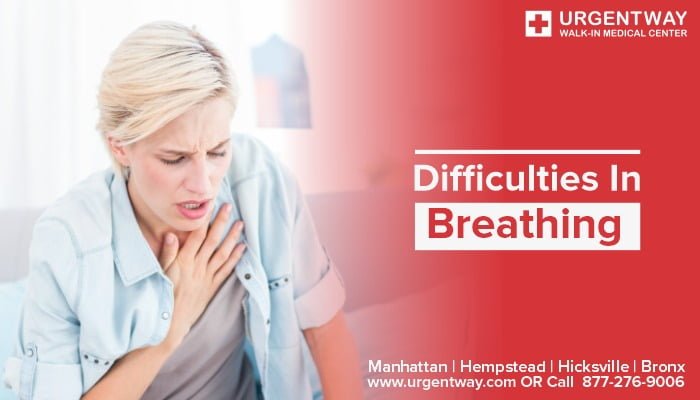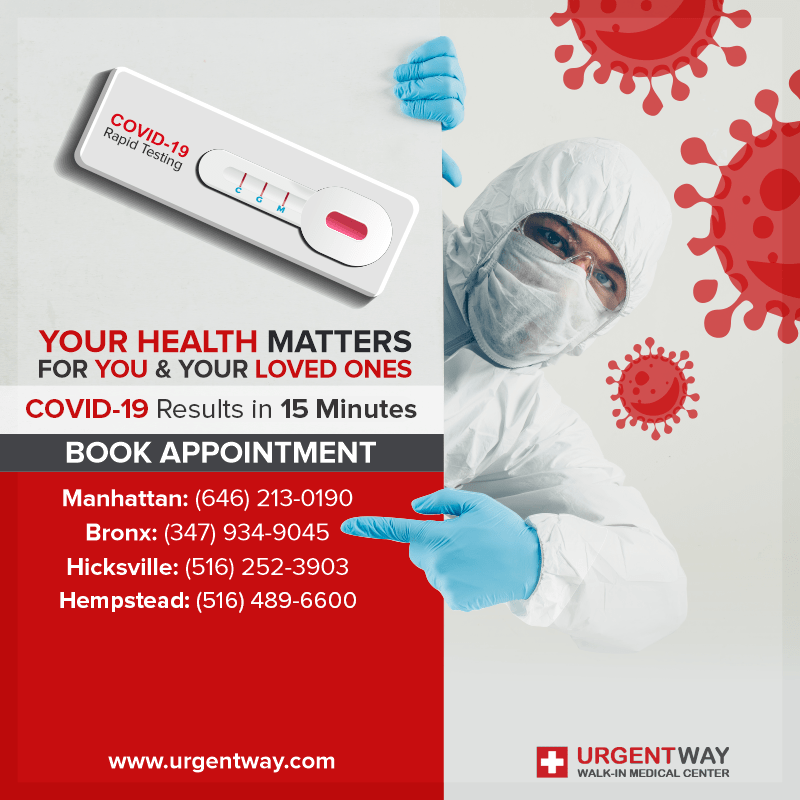Difficulties in breathing are indications of an assortment of gentle to genuine basic issues, infections, and conditions that meddle with ordinary respiration and breathing. Breathing challenges, once in a while called dyspnea, can be brought about by infection, trauma, inflammation, malignancy, airway hindrance, and other unusual processes. It’s uncomfortable for you to take in the oxygen you need when you’re winded. Sometimes you can confront less than overwhelming troubles in breathing because of a stodgy nose. Yet, shortness of breath additionally might be an indication of a serious respiratory disorder.
Symptoms
Episodes of Dyspnea are not always directly related to the health of an individual. A person may experience shortness of breath after intense exercise, when traveling to a high altitude area, or going through major temperature changes. But usually, it relates to health issues.
Symptoms of difficulties in breathing may include:
- Cough
- Chest torment
- Chills
- Noisy breathing
- Wheezing
- Fever
- Muscle pain
- Sweating
- Exhaustion
- Increase in your pulse rate
- Using your shoulder and your upper chest muscles to assist you in breathing
On the off chance that you experience any of the all above-given symptoms, it’s smarter to contact your Primary Care Physician.
Causes
Some people experience trouble breathing due to infections like sinusitis. Infections like sinusitis can make it hard to inhale through your nose. Difficulties in breathing are might be chronic, if so they might include chronic sinusitis, allergies, and asthma. Your nasal section is a pathway for viruses and allergens to enter your lungs. So your nose and sinuses are regularly connected with numerous lung issues. Sinus or nasal entry irritation may trigger asthma assaults. What’s more, the No. 1 trigger for asthma is allergies.
Many different condition lead to difficulties in breathing. The most common causes of difficulties in breathing are:
- Asthma
- Congestive heart failure
- Chronic obstructive pulmonary disease (COPD)
- Interstitial lungs disease
- Pneumonia
- Psychogenic problems (anxiety disorders and panic attacks)
- Tuberculosis
- Lungs cancer
- Traumatic lungs injury
- Croup
- Obesity
- Sarcoidosis
- Broken ribs
- Exposure to carbon monoxide
- Hernia
Diagnosis
Specialists analyze breathing issues by doing a physical exam, getting some information about your general well-being, and conducting different tests. For example, pulmonary or lung work tests can gauge lung work in individuals who have asthma. These incorporate spirometry and a test is known as a methacholine challenge.
Spirometry is a basic breathing test. It estimates how much air you can blow all through your lungs, and how quickly and how effectively you can do this. It can tell whether your aviation routes are hindered and how a lot. A methacholine challenge test may assist with a finding of asthma. Your PCP will realize which test is best for your circumstance. Your Primary care physician may recommend an X-ray to examine lung, heart, and chest bones. X-ray is the best way to examine pneumonia. Some people experience shortness of breath because of hypersensitivities. So your PCP may prescribe an allergy test to analyze the issue.
Treatment and Prevention
Anything which causes trouble in breathing is called a trigger. Keeping yourself away from triggers is the most ideal approach to controlling allergies and asthma. It might assist with wearing a residue cover while doing housework or yard work, limiting contact with a hairy pet, washing bed materials at least once per week, staying inside during top dust times, and changing the filter of your air conditioner regularly.
There are several causes of difficulties in breathing, some of which are serious and require emergency clinical treatment. If it’s not severe it can be treated at home. You can prevent breathing issues by adopting a healthy lifestyle including:
- stop smoking
- Staying away from pollutants, allergens, and ecological toxins
- Get rid of obesity if you are overweight
- Staying away from efforts at high elevations
- following the suggested treatment plan for any fundamental sickness like asthma, COPD, or bronchitis
- Stay healthy by eating well, getting sufficient rest, and visiting a specialist for any basic clinical issues


